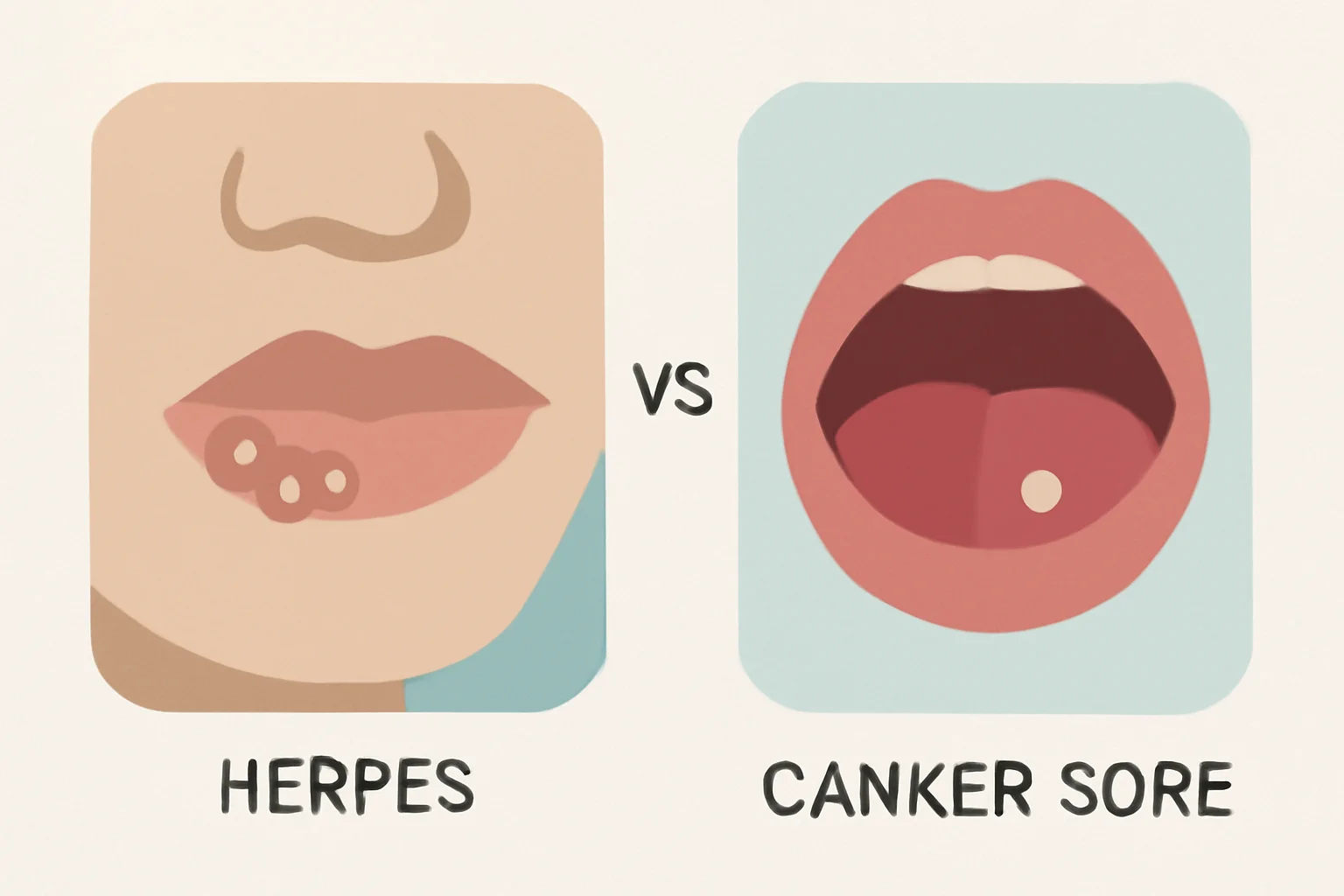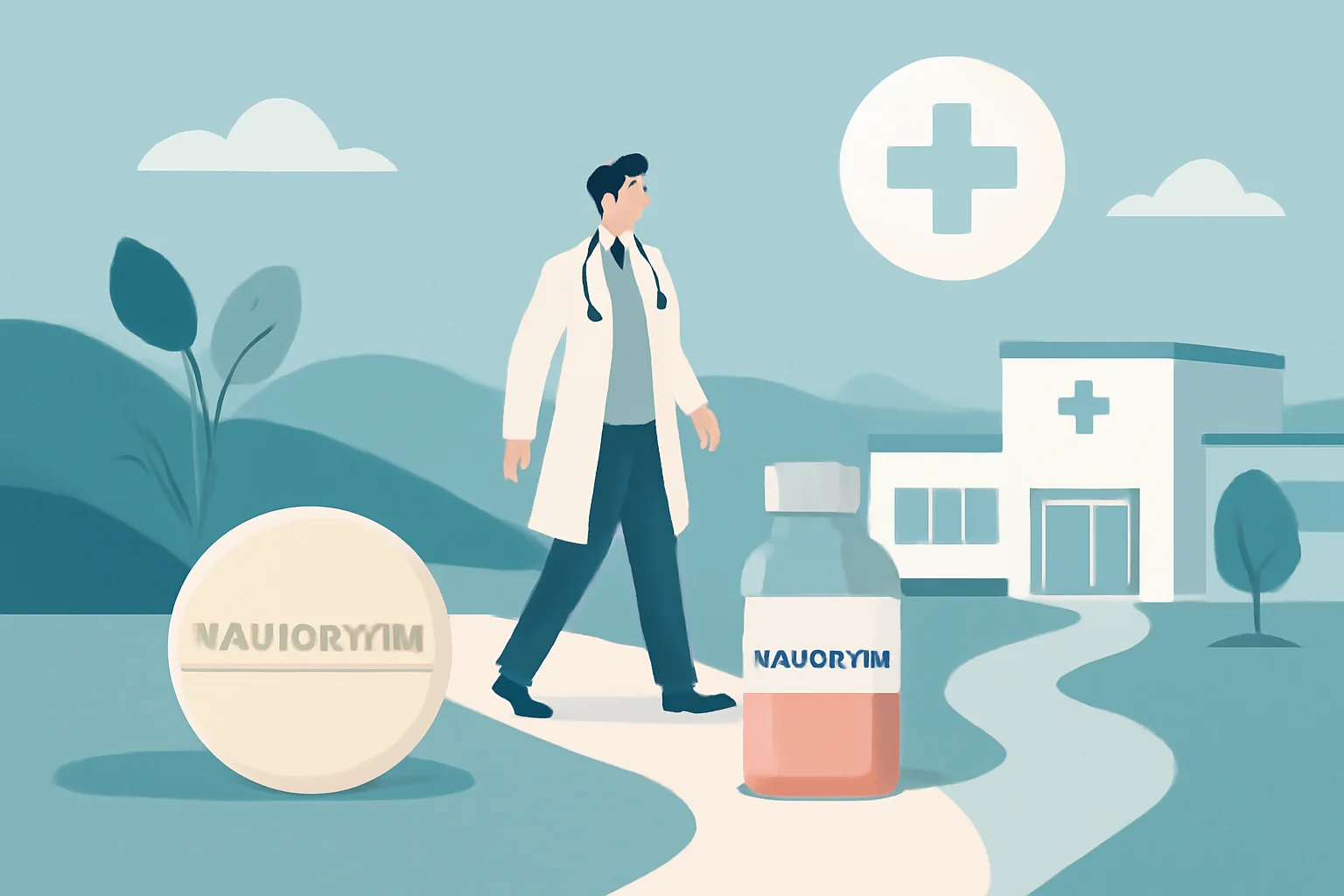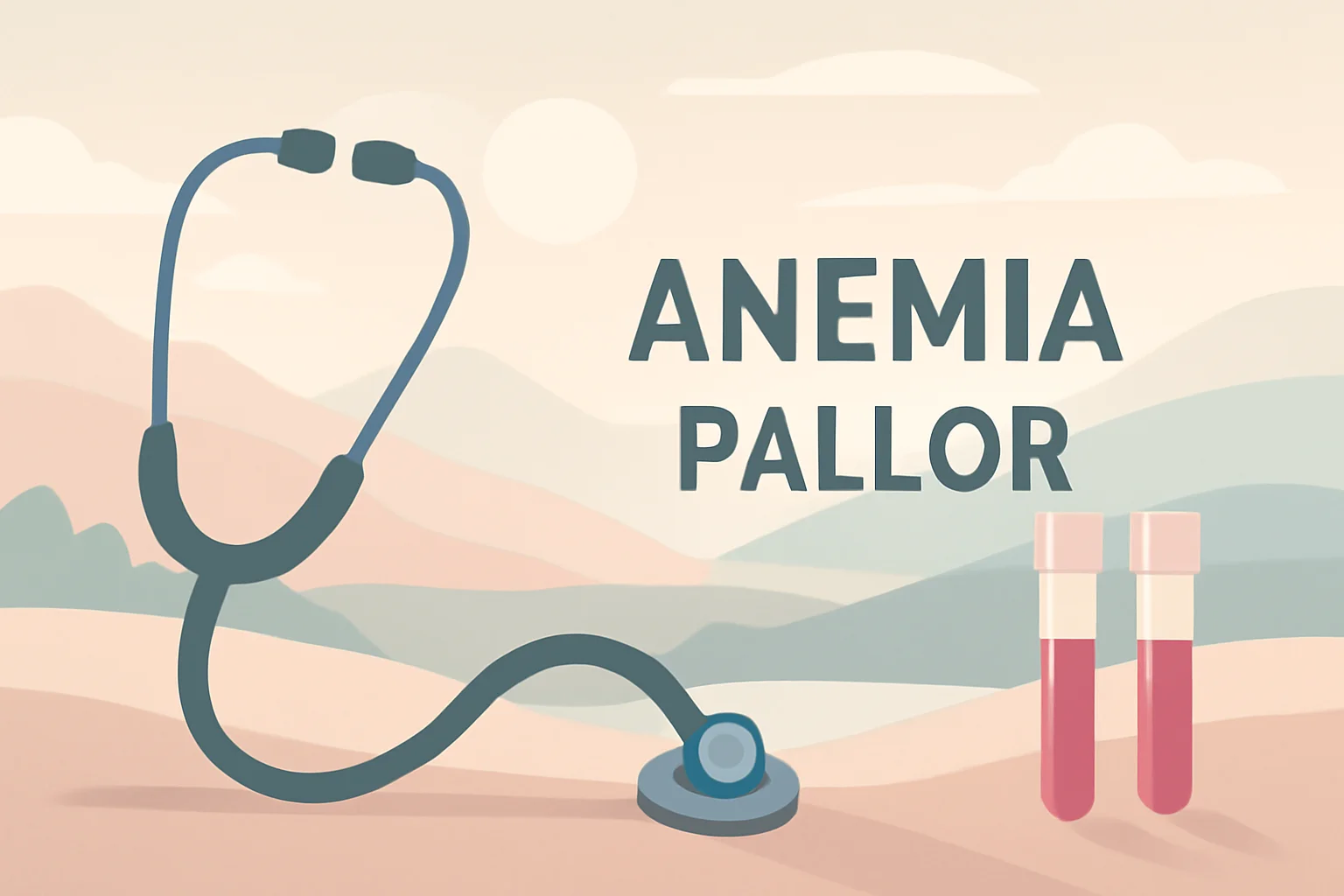
Herpes or canker sore: What is the difference and how do we treat them?
The herpes and aphthous ulcer are two oral lesions that are often confused, despite significant differences between them. Both issues can cause discomfort and disrupt daily life, such as eating or speaking. Herpes is an infection caused by the herpes simplex virus, which typically appears around the mouth, while aphthous ulcers refer to small, painful sores that develop on the mucous membranes of the mouth.
Although both can be painful, the two conditions arise from different causes and require different treatment methods. Herpes is usually recurrent and the virus remains in the body for life, whereas aphthous ulcers are typically a one-time occurrence that can be triggered by various factors such as stress, nutritional deficiencies, or hormonal changes. People often seek solutions to alleviate the symptoms, but it is important to understand the differences between the two conditions in order to manage and prevent the problems more effectively.
What is herpes?
Herpes is a viral infection caused by the herpes simplex virus (HSV). There are two main types: type 1 herpes, which most commonly occurs on the mouth and lips, and type 2 herpes, which typically appears around the genital area. The primary infection of herpes is often asymptomatic, but in many cases, symptoms such as fever, fatigue, and swollen lymph nodes may occur.
Herpes recurrences typically occur due to stress, illness, hormonal changes, or exposure to sunlight. During a recurrence, small blisters appear in the infected area, which can be painful and itchy. These blisters usually burst within a few days, after which a crust forms, healing within a few weeks.
There are several options available for the treatment of herpes. Topical creams and antiviral medications can help alleviate symptoms, while doctors often recommend stress management and maintaining a healthy lifestyle for prevention. The herpes virus is highly contagious, so it is important for infected individuals to avoid direct contact with others during a recurrence.
What is an aphthous ulcer?
An aphthous ulcer, also known as an aphthous sore, refers to painful, round or oval sores that appear on the mucous membranes of the mouth. These sores are usually white or yellow and are surrounded by a red, inflamed border. The occurrence of aphthous ulcers spans a wide spectrum, from children to adults, and in many cases, the exact cause cannot be determined.
The most common triggers for aphthous ulcers include stress, vitamin deficiencies (especially deficiencies in vitamin B12, folic acid, and iron), hormonal changes, and local irritations such as rough eating or the use of braces. Aphthous ulcers typically heal on their own within a few days, but due to the pain and discomfort, many seek relief solutions.
During treatment, the use of pain-relieving mouth rinses, local anesthetics, and anti-inflammatory medications is recommended. Additionally, it is important to pay attention to nutrition, as certain foods, such as citrus fruits or spicy foods, can exacerbate symptoms. For prevention, it is advisable to avoid stressful situations and ensure adequate vitamin intake, as this can significantly reduce the chances of developing aphthous ulcers.
Differences between herpes and aphthous ulcers
The key differences between herpes and aphthous ulcers lie in their triggers, locations, and symptoms. While herpes is a consequence of a viral infection, aphthous ulcers are more often attributed to environmental and lifestyle factors. Herpes typically appears around the mouth, while aphthous ulcers manifest inside the mouth, such as on the gums or tongue.
Herpes presents as blistering lesions that later burst, while aphthous ulcers are round, painful sores that do not blister. Furthermore, due to the frequency of herpes recurrences and the contagious nature of the virus, individuals with herpes must be particularly cautious to avoid spreading the virus to others, whereas aphthous ulcers are not contagious.
The symptoms also differ; herpes is often associated with fever, fatigue, and swollen lymph nodes, while aphthous ulcers primarily cause localized pain and discomfort. Their treatments also differ, as antiviral medications are used for herpes, while pain relievers and anti-inflammatory medications are recommended for aphthous ulcers.
How to treat herpes and aphthous ulcers?
The treatment of herpes and aphthous ulcers requires different approaches, but in both cases, it is important to alleviate symptoms and promote healing. The focus of herpes treatment is on antiviral medications. These medications can help reduce the frequency of recurrences and the severity of symptoms. Topical treatments, such as creams and gels, can also be helpful in alleviating pain and itching.
To prevent herpes infections, it is important to adhere to hygiene measures, such as regular hand washing and avoiding sharing personal items like towels and utensils. Stress management, healthy eating, and adequate rest can all contribute to preventing herpes outbreaks.
In the case of aphthous ulcers, the main goal is to relieve pain. Mouth rinses that contain pain relievers, such as lidocaine, can help alleviate symptoms. Additionally, anti-inflammatory medications like ibuprofen or naproxen can also be beneficial. Proper nutrition, especially the intake of vitamins and minerals, can help prevent aphthous ulcers.
It is important to note that in both conditions, if symptoms worsen or do not improve, medical advice should be sought. Doctors can provide an accurate diagnosis and recommend the most appropriate treatment plan.
—
This article does not constitute medical advice. Always consult a doctor for health issues.

